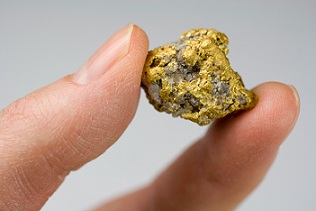The gold standard for cancer treatment

date: 17/01/2014
Project: Gold(III)-based anticancer agents: dithi...
acronym: PEPMIDAS
See also: Info-centre
Contact: http://www.unipd.it/
Humanity’s battle against cancer is an unceasing one, and in recent years, new technologies have steadily improved the odds of beating the disease. According to the Organisation for Economic Cooperation and Development (OECD), the five-year survival rate for breast cancer in most member countries is now over 80 %.
One factor has been the more accurate targeting of tumour cells. For some 35 years, cisplatin and other platinum-based drugs have proved their ability to bind to DNA strands and destroy tumour cells. But doctors have discovered that they are not effective against all cancers; tumours tend to become resistant during lengthy treatment, and their toxicity can cause kidney failure and other systemic damage.
Professor Dolores Fregona and her research team at the University of Padua in Italy designed and tested gold compounds with the aim of “delivering the metal as a cytotoxic smart bomb” – killing off cancer cells while minimising the impact on other organs. Five years ago, they secured EU funding for the PEPMIDAS project, and launched a laboratory screening programme using cisplatin as the reference.
“The side effects of chemotherapy, in particular with platinum-based drugs, are a major drawback for patients,” says Professor Fregona. “Interestingly, our compounds show different action mechanisms.”
The team focused on two types of cancer: breast and prostate. Experiments on female mice bearing highly metastatic human breast cancer cells, using two gold compounds known as AuD6 and AuD8, revealed a 53 % reduction in cancer growth compared to the control treatment, within a month. Among the most responsive animals, the rate reached 85 %, with tumours actually shrinking in some.
And there was another striking result. “The mice appeared healthy and very active throughout the treatment. They showed neither fatigue nor weight loss, ruling out the onset of side effects due to chemotherapy,” explains the professor.
Furthermore, the team discovered that aggressive prostate cancer cells (resistant to cisplatin) were also sensitive to AuD8 and AuD9 gold derivatives, which successfully attacked diseased cells and slowed their proliferation, without any discernible toxic impact on lungs, spleen, liver or kidney.
International recognition
Prof. Fregona patented the technique in 2010, securing worldwide protection for her research findings. “The EU has been absolutely fundamental in allowing us to perform the in vitro and in vivo screenings of our compounds,” she acknowledges. “If I had not obtained financial support, I would not have been able to make the patent.”
In addition, the work has garnered a series of awards, both Italian and international. Prof. Fregona herself won the Belluno Women of Excellence prize in 2011. Her collaborator, 29-year-old PhD student Chiara Nardon, was named top young innovator in the field of biochemistry in 2013, and was able to exchange notes with the world’s most brilliant chemists at the Lindau Nobel Laureate Meeting in Germany.
But there is still some way to go. The team needs to secure enough backing to complete preclinical studies and launch the first phase of clinical trials. With this in mind, Prof. Fregona has already identified a private investor and is setting up a spin-off company, and may apply for further EU funding through the Horizon 2020 programme. Eventually she hopes to present the research to a pharmaceutical company in order to undertake the experimental phase among terminally ill cancer patients.
